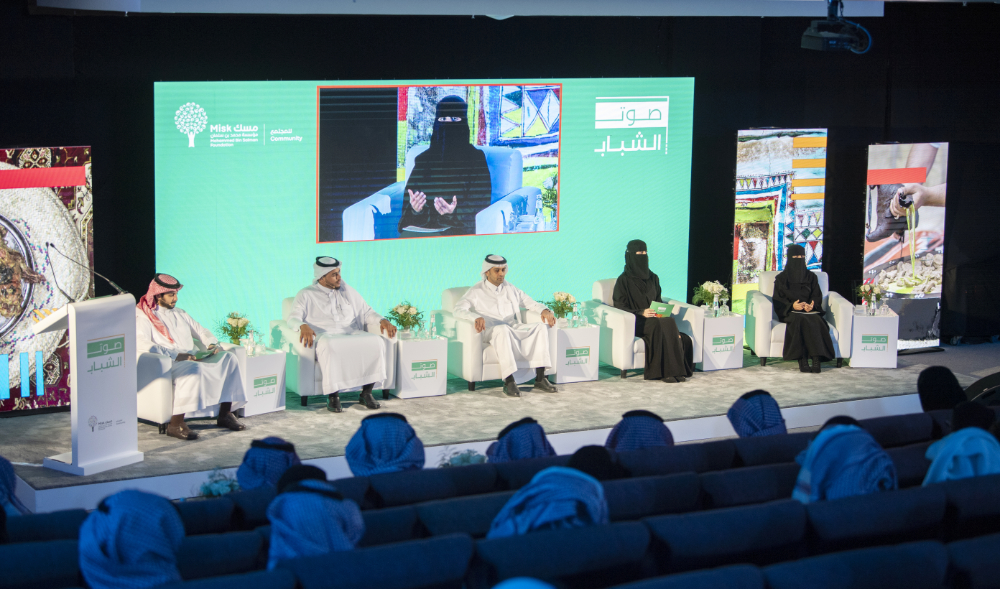MAKKAH: The Mohammed bin Salman Foundation, Misk, has launched the second Youth Voice Program, which aims to engage young Saudis through an enrichment program focusing on developing their communication skills.
The program also aims to refine cognitive, dialogue and intellectual capacities, and enhance the spirit of active citizenship.
Through the program, Misk seeks to develop the personal abilities of young people, enhancing their self-confidence and enabling them to deal with difficult situations and build coherent and solid arguments using communication skills.
Dima Al-Sheikh, director of community engagement, global affairs and research at Misk, told Arab News that the foundation had sought since its establishment to involve young people in leadership, decision-making and community participation at the international, regional and local levels.
HIGHLIGHT
Dima Al-Sheikh said that through the program, Misk had found that the graduates of the program last year were now leaders and influencers in the organizations to which they belonged.
The program will be held virtually and will end with a certificate of completion ceremony for the participants. It will enable participants to conduct a debate facilitated by Misk to activate the role of young people as influential citizens in finding solutions and ideas for the community’s challenges.
“We identified several difficulties that young people face in communication and dialogue, the most important of which is expressing thoughts in an effective way,” Al-Sheikh said.
“After engaging with young people through channels that Misk has conducted in many programs, the Youth Voice platform contributes to qualifying young people with basic communication skills to help them acquire debate skills, which is an essential skill of the 21st century because it helps in improving listening and argument-formation skills.”
She said that the method of dialogue was usually seen as body language, proposition method, linguistic richness, or the physiological readiness to stand on the stage. However, the technique of arguments and debate helped young people to present their thoughts constructively.
Al-Sheikh said that young people sought security for themselves, their jobs, knowledge and behavior. “The Youth Voice Program lives up to these aspirations in assisting young people by representing themselves and their community through many issues that preoccupy them as young people.”
There were thousands of trainees in the program, and some of them were nominated based on the articles they submitted and the videos they recorded, she said.
“Accordingly, we select hundreds of representatives from each city, where they are given intensive courses to adopt issues that do not concern them only as individuals but also concern a large segment of young people. There are cultural, historical, educational, social and other issues through which they can get enough space to express them efficiently.”
Al-Sheikh said that through the program, Misk had found that the graduates of the program last year were now leaders and influencers in the organizations to which they belonged.
“They have also become leaders of some volunteer campaigns and non-profit organizations, and they have a sense of active citizenship that we want many young people to acquire. We have noticed beautiful results that are now bearing fruit through beautiful communication among young people,” she said.
Those wishing to join the program should register through the Misk foundation’s website.
















